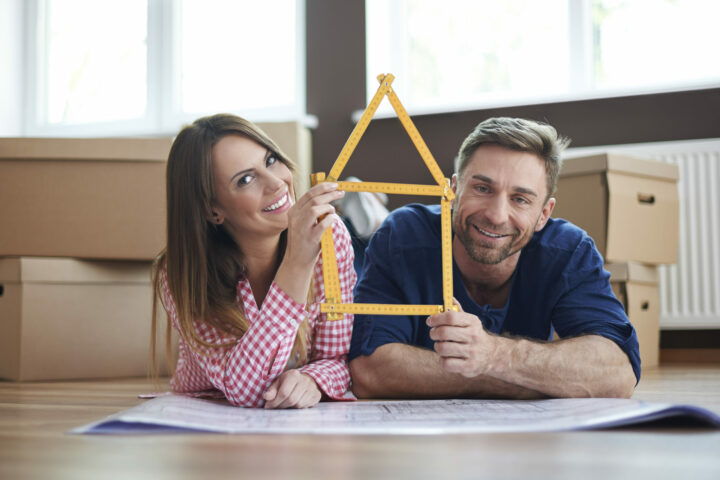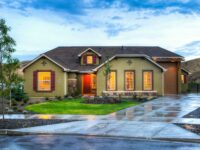The following contribution is from another author.
Homeownership signifies a significant achievement and a step towards establishing roots and building a future. Many aspire to achieve this goal, as owning a home provides stability, security, and pride.
However, the journey to homeownership often begins with a critical decision: should you build a house or buy one? This decision is significant because it impacts your immediate housing needs and shapes your long-term financial outlook and lifestyle.
Let’s explore some essential considerations to help you make this decision.
Location and Neighbourhood
Building your own home means you can choose where it will be located. You can explore different neighbourhoods, considering factors like amenities, schools, and proximity to work. This flexibility allows you to find the perfect spot that suits your lifestyle and preferences.
Let’s say you prefer to reside in Sydney. There are lots of home builders sydney has to offer that are available. They can guide you to the perfect spot for your new home, matching your lifestyle and preferences.
However, when you buy a home that’s already built, you’re limited to the available properties in existing neighbourhoods. While this offers convenience, it may mean compromising on specific location preferences. You’ll need to weigh factors like proximity to work and amenities against your desire for a specific neighbourhood or school district.
Cost Considerations
According to the U.S. Census Bureau’s May 2023 data, the average sales price of a new single-family home stood at $487,300, marking an increase from $464,200 in 2021. However, this figure includes the house and the land it sits on. On the other hand, the average cost of building a home was $392,241, which solely represents the “contract price” charged by the contractor for constructing the house. The cost of land, if required, is a separate expense.
Building a home may seem more financially feasible for those already owning land. However, the average lot cost has risen, reaching nearly $114,622, according to the NAHB survey. Hence, this means that the overall cost of building a home may not necessarily be lower than buying a newly constructed one if you need to purchase land.
It’s worth noting that the Census Bureau figures also encompass sales of existing homes. The NAHB estimates the sales price of a newly built single-family home at $644,750, encompassing not only the cost of construction but also lot expenses, marketing costs, sales commission, and profit margins.
Additionally, it’s essential to consider the role of general contractors in the home-building process. Hiring a general contractor adds 20 to 30 percent to the construction cost. Even though this may seem like a significant expense, attempting to act as your contractor comes with challenges and risks. Managing subcontractors, navigating building permits, and ensuring quality control can be daunting, especially for those new to construction.
Time and Convenience Factors
Building a house demands patience and meticulous planning. Every step, from the initial design phase to the final construction, requires careful consideration and attention to detail. The timeline can vary depending on factors such as the size and complexity of the project, the availability of materials, and local building regulations.
The design phase typically involves working with architects and designers to create blueprints and floor plans that meet your vision and requirements. This stage can take several weeks or even months as you refine and finalise the design details.
Once the design is approved, the construction phase begins, which can be the most time-consuming part of the process. Construction timelines can stretch from several months to over a year, depending on weather conditions, availability of skilled labour, and unforeseen delays.
In contrast, buying a house involves a shorter timeline focused on finding the right property and completing the closing process. The time it takes to find a suitable home can vary depending on market conditions, location preferences, and personal preferences.
Once a suitable property is found, the closing process typically takes several weeks. It involves various steps, such as negotiating the purchase price, securing financing, conducting inspections, and finalising the legal paperwork.
Customization and Personalization
Building your own home means you get to call the shots. From the layout to the materials used, everything is up to you. For example, if you like ranch-style homes for their architectural style and open interiors, you can hire a specific ranch home builder experienced with that particular design. With a self-build, you can fully customise your home. Want a big kitchen with lots of counter space? No problem. Prefer hardwood floors to carpet? You got it.
The possibilities are endless, and you have the freedom to create a space that perfectly reflects your style and needs.
On the other hand, when you buy a home that’s already built, you might not have as much control over the design and layout. However, that doesn’t mean you can’t personalise the space to suit your taste.
Simple changes like painting walls or updating fixtures can make a big difference. And if you’re willing to invest more time and money, more extensive renovations like a kitchen remodel or bathroom upgrade are also options.
Environmental Impact and Sustainability
Building your own home lets you prioritise sustainability right from the start. You can use eco-friendly materials and energy-efficient designs to lower your environmental footprint. Options like solar panels and smart home technology enhance your home’s sustainability.
But, when you buy a pre-existing home, the materials are already in place, so you may need to retrofit it for sustainability. However, with upgrades like energy-efficient appliances and better insulation, you can still reduce your environmental impact over time.
Conclusion
Deciding whether to build a house or buy one is a complex decision that requires careful consideration of various factors. Take the time to weigh the pros and cons of each option, and remember that there’s no one-size-fits-all answer. Ultimately, the right choice is the one that feels right for you and your family.
















